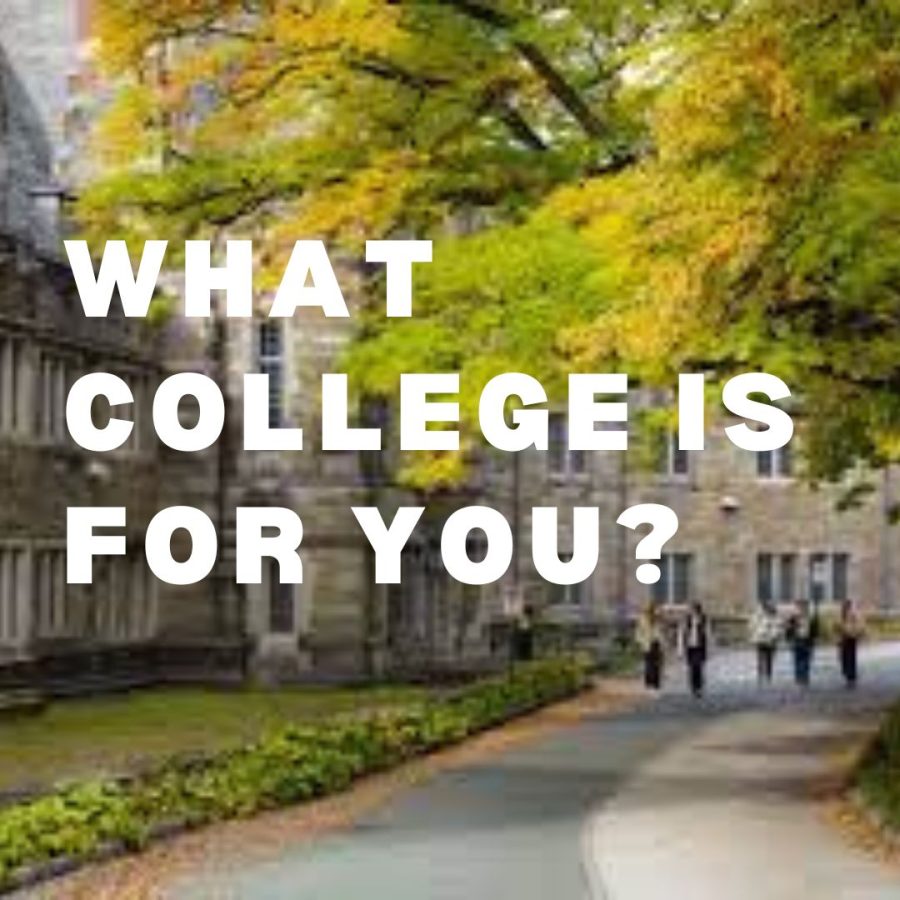Deciding What College is Just Right
Your college search should be fun, not stressful.
There are over 5,300 colleges: you will find one for you!
The fall of junior year is often the start of the college-search experience for many students. With the SAT or ACT test, taking on more challenging courses, and building a resume, many juniors begin thinking of potential colleges they want to attend, if that is the route they will take after high school. College tours are essential to give you the feel of the school and tell you what type of education they can offer you. It can be very stressful deciding what your wants are in a school, and what types of questions to ask on the tours themselves. To try and help, I’ve created a list of important factors to keep in mind when deciding where you will spend your next four years.
Size
College sizes can range from a few hundred undergraduate students to a whopping 70,000 students! The size of the school can factor into social events, class sizes, and more. If you’re a very social person who enjoys meeting new people, a bigger school may be the better fit for you. However, if you’d rather live in a smaller environment where your student-to-professor ratio is much closer, consider touring a small school. For many students, a school in the middle could work well. An undergrad population of 10,000 students, for example, gives you many options to meet new people while not seeming too overwhelming.
College vs University
Many students don’t know the difference between a college and a university, but it’s really quite simple. A college focuses more on the undergraduate education, and typically doesn’t offer degrees higher than a bachelor’s. Colleges include liberal arts schools, community colleges, and technical schools. On the other hand, a university houses a higher level of education with a graduate program and medical or law school. If you think you will want to further your education after receiving your bachelor’s degree, consider going to a university. However, many students complete their undergraduate education at one school, then go to another school to complete their graduate degree.
Location and Campus Type
The location of your future school can determine many aspects of your college experience: social life, internships, and campus type. Schools located in the city have a vibrant nightlife, and many future job or internship opportunities. With being in the city, campuses tend to have more concrete buildings, with less of the luscious grass and brick buildings found in rural campuses. Additionally, you’re more likely to have a football team in a rural, larger campus, if that is something that matters to you. With a rural campus though, students could feel isolated, and not have many options for night outings. Tour both city and rural colleges, and you will quickly see which option better suits you. Another component with location is proximity to home. Schools near South Jersey include Rowan, Monmouth, and Rutgers.
Academics
With all the other elements going into your ideal college, it can be easy to forget what should be the most important part of your college career: the academics! Many high school students don’t know what they want to do for the rest of their life, so it may be smarter to choose a college offering many majors. If you have some idea on what you may want to study, research what colleges are best for your intended major. This can help cut down the options, and set you up for the best learning experience.
Cost
Unfortunately, college is not always the most affordable plan for post-high schoolers. Colleges can cost over 80,000 dollars per year, and then there’s the added cost of potential graduate school. Applying for scholarships is definitely a good idea, but it doesn’t guarantee complete financial aid. Save up as much as you can during highschool, and if needed, there is always the option of taking out loans. However, it may work better to spend some of your college years at your local community college, and save up during those years.
Stay Open Minded
Opinions on your ideal college are subject to change: welcome those changes! The school you end up at may be completely different than the one you imagined. Best of luck on your college search, and keep these factors in mind!



